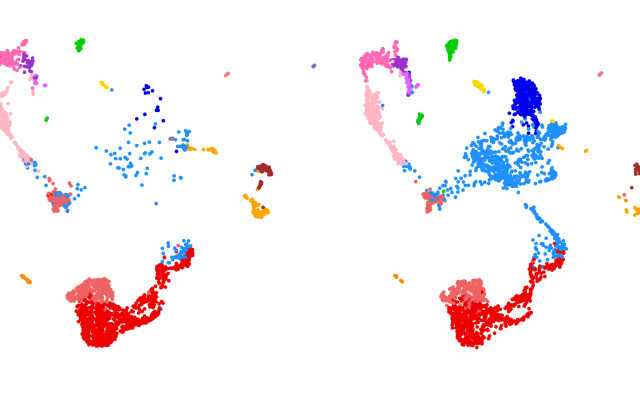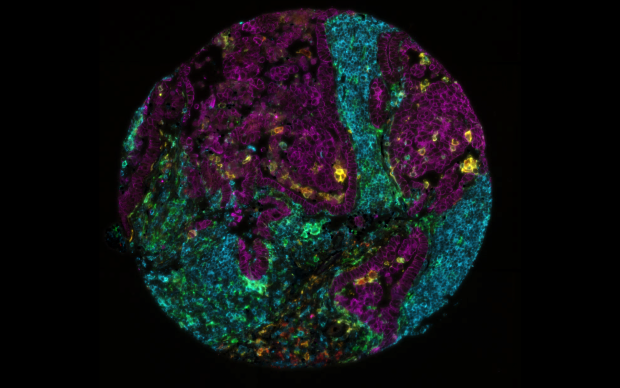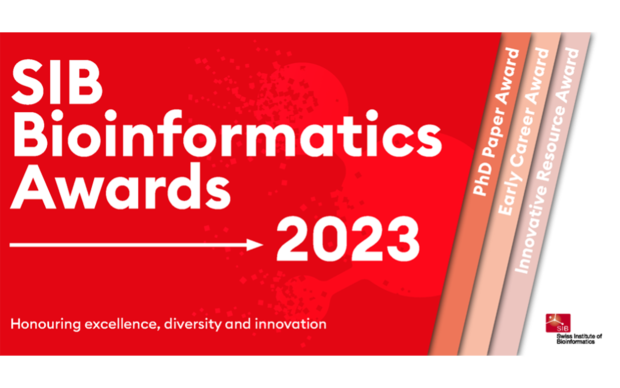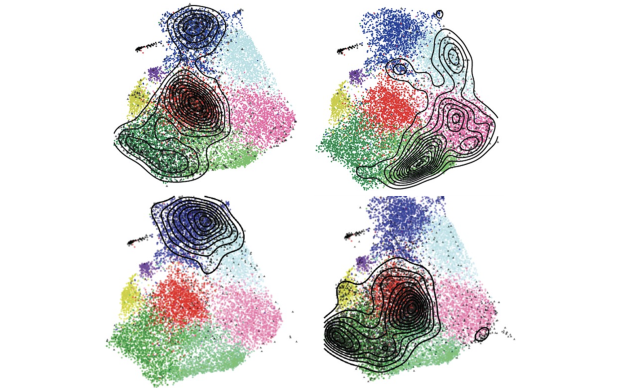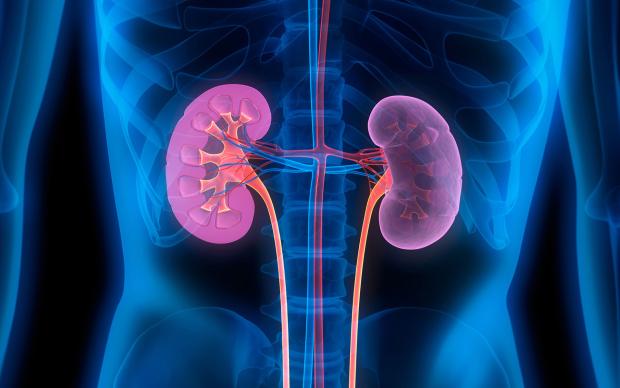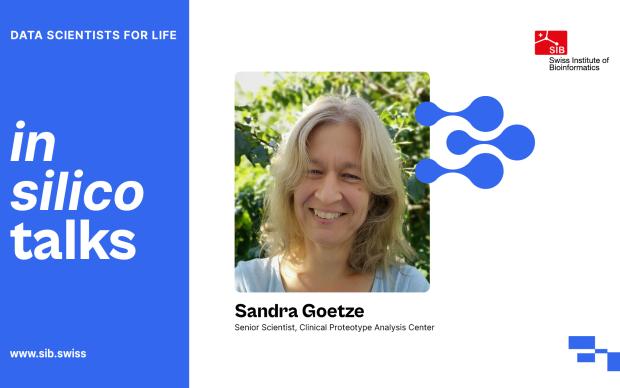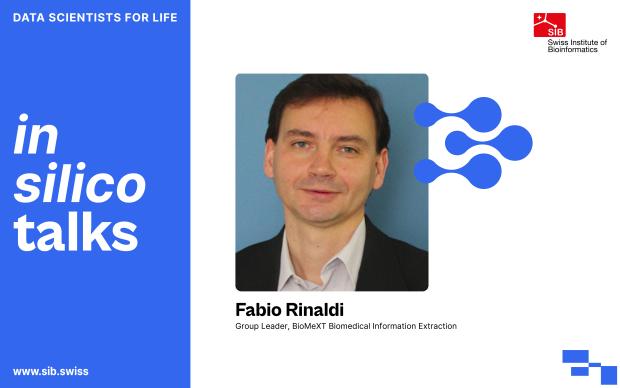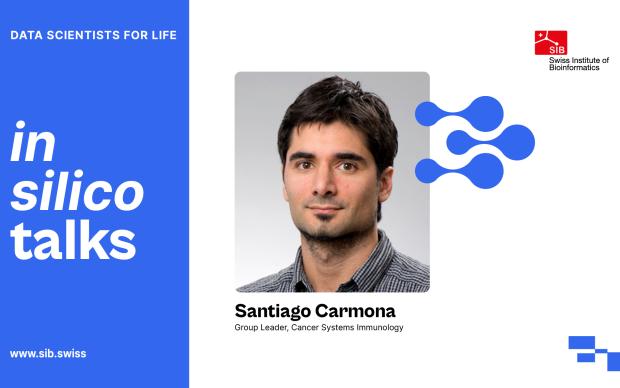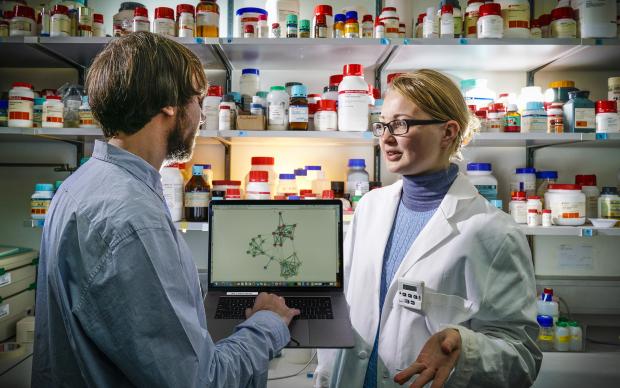As possibilities of data acquisition to study cancer widen, so do the methods used to investigate and reveal the nature of this complex disease. Recent illustrations of this are the advances in the field of immunotherapy led by clinical researchers in Switzerland. These advances have been empowered by the expertise of SIB scientists in single-cell expression data analysis. Find out more about how our experts support oncology research.
Disarming the resistance of tumours to immunotherapies
Three key findings resulting from collaborations between SIB scientists from the Translational Data Science (TDS) facility in Raphael Gottardo’s group at the CHUV and clinical researchers from EPFL, Ludwig Cancer Research Institute, Roche, and the University of Geneva are: 1) the identification of a key protein that helps tumours evade attacks by the immune system [1], 2) a drug combination that breaks down cancer resistance [2], and 3) identifying the most appropriate time of the day to boost the efficiency of immunotherapies [3]. These findings have been highlighted in three high-profile publications in Science, Immunity, and Nature respectively.
Studying cancer at single-cell resolution
Single-cell RNA-seq allows the assessment of changes in gene expression at the individual cell level in tumours and other tissue types. For instance, prevention strategies and targeted treatment can be designed by highlighting the mechanisms tumour cells use to develop drug resistance.
Single-cell data science supporting discoveries
To support research projects, the TDS team builds on its extensive expertise in the analysis of single-cell RNA- and TCR-sequencing data (see box) to study cell interactions and perform survival analyses using public databases such as The Cancer Genome Atlas. “We are very proud to be able to use our skills to contribute to advances in oncology research,” says Nadine Fournier, Assistant Director of TDS. “We look forward to making more advances in healthcare with the services that we offer to analyse other data types including CyTOF, spectral flow cytometry, and spatial transcriptomics.”

A range of expertise supporting cancer diagnosis and research
Single-cell data analysis is but one of the ways Swiss bioinformatics supports advances in oncology. Other expertise includes the development of clinical diagnostic software in partnership with hospitals to streamline and automate the analysis of patients’ tumours (e.g. Oncobench®). Additionally, integration of multiple data types (e.g. clinical, molecular profiling, and cellular spatial data) aids to understand how the immune system and tumours interact, as well as the impact of therapeutic interventions (e.g. the large public-private consortia IMMUcan).
Reference(s)
Zeng et al. (2022) Aberrant hyperexpression of the RNA binding protein FMRP in tumors mediates immune evasion. Science.
Tichet et al. (2023) Bispecific PD1-IL2v and anti-PD-L1 break tumor immunity resistance by enhancing stem-like tumor-reactive CD8+ T cells and reprogramming macrophages. Immunity.
Wang et al. (2022) Dendritic cells direct circadian anti-tumour immune responses. Nature.


